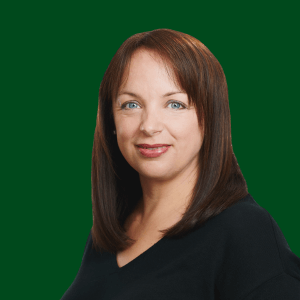
Can you tell us about your role at Fortysouth, what you love about it and what it is teaching you about yourself?
Fortysouth was created when One NZ (formerly Vodafone) sold its network of telecommunications towers to a consortium of three infrastructure investors in 2022. We have a portfolio of approximately 1,500 towers and work with mobile network operators, fixed wireless providers and critical communications services to connect New Zealanders. When I started a year ago, the organisation was less than a year old and there were about 20 staff. Being part of the team that has established the organisation from scratch has been a unique opportunity and very rewarding. I’m the only lawyer here, which means I’m often outside my comfort zone, but I also have a large degree of autonomy and can, in a small way, influence the way we do things. I love the variety of interesting work that comes my way and solving problems as part of a small but supportive team.
Setting up a legal function from scratch has been harder than I expected, and it’s been a steep learning curve at times, but one I enjoy! I’m excited about the future challenges and opportunities both for myself personally and for the organisation.
In-house legal are known to 'put out fires before they begin'. How do you mitigate and foresee risk before it arises?
Fortunately, this is a team effort as we’ve got an experienced leadership team who are alert to potential risks. I also ask lots of questions! We have gone through an extensive process, both as a leadership team and with our Board, to look at the main risks for the organisation and potential mitigations. However, the most important thing for us is that everyone goes home safely. In an organisation like ours where people are working at heights and with electricity, health and safety is critical. We’re moving to a Safety II approach, which emphasises proactive measures to prevent incidents (and learn from what we do right) rather than reactive responses post-incident. We have also established an industry wide health and safety group to share learnings and identify potential improvements across the telecommunications industry. Separately, I think that we can avoid small fires by communicating well, being reasonable and being a good partner for both our customers and vendors.
What strategies do you use to demonstrate the value of your work to other departments and senior leadership?
Going on holiday regularly - I hope I’m missed when I’m away! Seriously, I’ve been lucky in that I haven’t had to persuade anyone that they should engage with me at an early stage. As part of the leadership team, I am involved in the important discussions and can bring a different perspective. I try to be easy to work with, give pragmatic (and solutions focussed advice) and get the job done without over-lawyering it! I think it’s also important to demonstrate that you deeply understand the commercial drivers for the organisation and help achieve those. If I can do all that, I hopefully demonstrate the value of my work.
As a new organisation, we’re creating the culture that we want from a blank sheet of paper. Therefore, it’s particularly important for me to model the culture that we want to create. Luckily, I get to work with great people! Finally, as a new (and small) organisation, being prepared to get stuck in and do jobs that I may not have expected to be within my role has been a common theme but I’ve enjoyed seeing things from different angles as a result.
What challenges are on the horizon, and how are you preparing to meet them?
The main challenge for me (and one that affects almost all in house lawyers) is prioritisation and how to best use my time. I’d like to explore ways in which AI could help me be more productive and I’m looking forward to trialling AI software that will take the minutes at our next board committee meeting. I’ll be in Australia supporting my daughter at a sports competition and so it’s the perfect opportunity to trial it!
For the wider legal profession, I think it’s important for us to open up access to students from more diverse backgrounds. Initiatives such as the Auckland University Insights Programme (which works with Māori and Pacific Island students to open their horizons to the possibilities a law degree brings and increases their confidence in applying for jobs) need our support.
Are there any innovations or technologies you have introduced or are planning to introduce soon?
As a new organisation, we have implemented a huge amount of technology (including new finance, H&S and project management systems) over the last year but I think the most interesting is our innovative digital twin function. Digital twins of the telecommunications towers are created using the high-definition imagery that drones capture which are formed, using AI, into a digital model. AI also performs detailed assessments of towers which can detect where maintenance is required (for example, rust or missing bolts). The digital twin enables our customers to complete engineering and electromagnetic assessments for equipment upgrades virtually. This allows for different designs and permutations to be worked through prior to any detailed design and reduces our environmental impact as there is less need to travel to site.